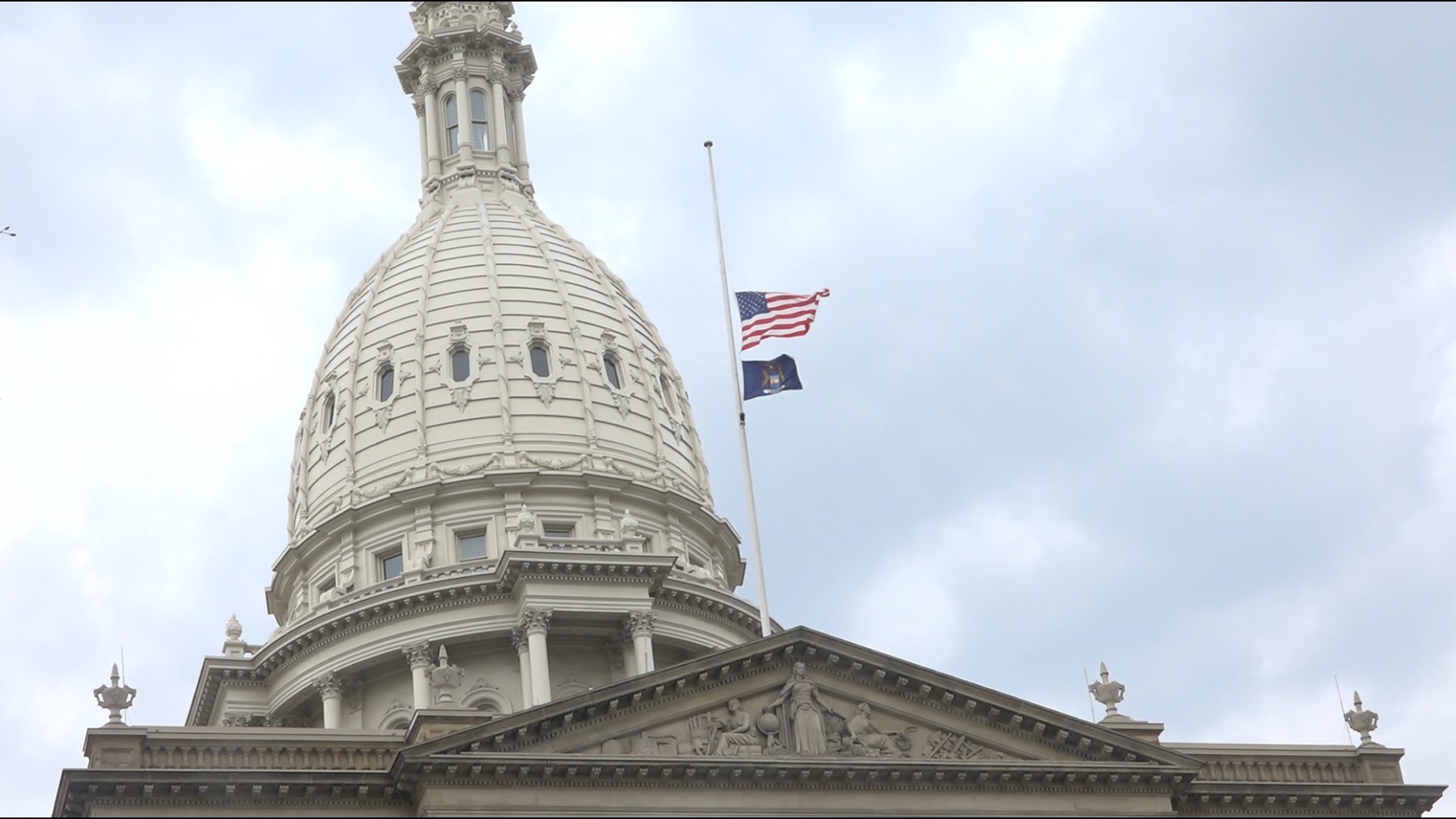LANSING, Mich. — The Michigan Supreme Court heard oral arguments Thursday that could change the no-fault auto insurance reforms passed in 2019.
Thousands of accident survivors who were catastrophically injured before 2019 want the Supreme Court to reinstate payments of their medical bills that were covered for years.
This case will likely stretch out over several months, and both a survivor and a lawyer that represents survivors hope to see this case go quickly in their favor, to help those who need round-the-clock, expensive care.
"I was injured in a car accident 42 years ago, a week ago, and I had a contract with my auto insurance company to take care of me for the rest of my life," Mike Harold of Montague says.
He is one of about 17,000 car crash survivors who had his medical care cut by 45 percent by the no-fault auto insurance reforms passed nearly four years ago.
Harold has been paralyzed for decades, and lost his wife less than a year ago.
"I don't have time to mourn the loss of my wife because I'm dealing with no-fault auto reform, and kind of deal with finding caregivers to replace her. I want to mourn the loss of my life, I don't want to care about no-fault auto reform," he says.
Harold has been keeping a close eye on what happens in the state's highest court. The justices are hearing a case that will determine whether the reforms are constitutional.
"There's people that are worse than I am, they're going to suffer for six months waiting for the Supreme Court to rule in our favor," he says.
Nick Andrews is an attorney with Liss, Seder & Andrews out of Bloomfield Hills. He represents multiple car crash survivors.
"If the court were to rule that the Court of Appeals got it right when they said that the law is not retroactive, what that means is that people who were injured before the law change would still have the benefits, and in a sense, the benefit of the bargain, the contract that they had before the change in the law," Andrews says.
The Michigan Supreme Court is not deciding whether to go back to the old law that covers all no-fault car crash survivors.
Instead, they're deciding whether a court of appeals ruled correctly that the reforms were unconstitutional because they changed individuals' contracts with their insurance companies that spelled out care for their injuries.
"But individuals who were involved in catastrophic collisions, after the change in the law, would likely not see any relief from the Supreme Court's ruling, although it is possible, I think that it's unlikely," Andrews says.
Supports of the reforms say that keeping the law in place means lower rates for drivers and their auto insurance plans.
"The caps are substantially more generous than we see under any other applicable system. They're more favorable than Medicare, Medicaid, workers' compensation, and even private insurance. And it was working. We saw rates coming down and we saw the driving public receiving a $400 per vehicle refund," Lori McAllister, attorney for USAA Casualty Insurance Co., says.
Both Harold and Andrews disagree with supporters, saying that the rates are not as low as insurance companies promised after the reforms passed.
►Make it easy to keep up to date with more stories like this. Download the 13 ON YOUR SIDE app now.
Have a news tip? Email news@13onyourside.com, visit our Facebook page or Twitter. Subscribe to our YouTube channel.

